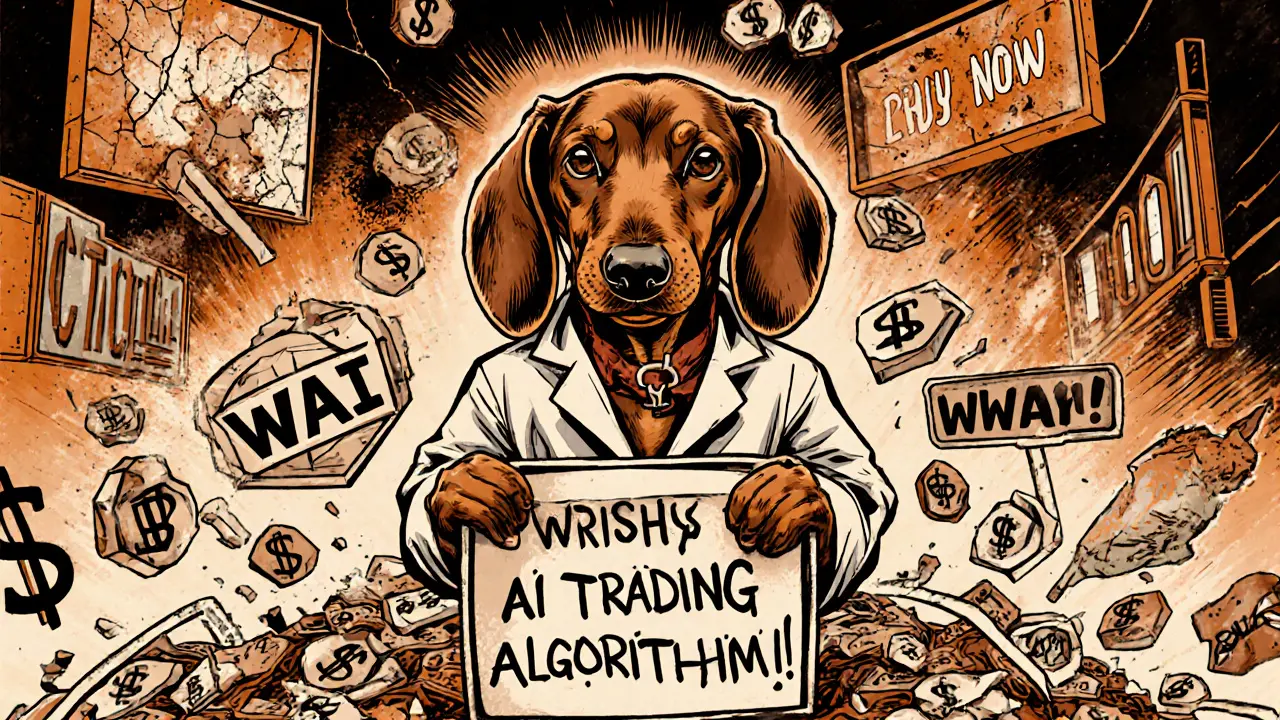What is Wiener AI (WAI) crypto coin? Facts, risks, and real-world performance
Wiener AI (WAI) is a meme coin with AI buzzwords and no real technology. Learn its price, risks, trading details, and why experts say it's unlikely to survive.
Read MoreWhen you hear Wiener AI, a crypto project blending AI trading logic with meme-inspired branding. Also known as WAI, it’s one of dozens of tokens trying to ride the wave of artificial intelligence in blockchain. But unlike big-name AI coins backed by real infrastructure, Wiener AI leans hard on community hype — and that’s where things get messy.
It’s not a tool. It’s not a platform. It’s a token built on Ethereum or BSC, likely with no clear team, no whitepaper you can trust, and no real product beyond a website and a Discord server. You’ll find similar tokens everywhere: AI trading bots, software that claims to predict crypto prices using machine learning, or crypto AI projects, blockchain-based systems that use AI for analytics, automation, or market signals. But most of them? They’re vaporware. Wiener AI fits right in. It doesn’t solve a problem. It just asks you to believe.
That doesn’t mean it’s useless. Meme coins like Dogecoin and Shiba Inu proved that community can drive value — even without tech. But Wiener AI doesn’t have that kind of history. It has no track record, no institutional backing, and no clear use case beyond speculation. The real question isn’t whether it works — it’s whether you’re buying into a narrative or a token. If you’re looking for AI that actually does something, check out projects with real code, audited contracts, and teams you can verify. Wiener AI? It’s a gamble dressed in tech jargon.
Below, you’ll find real reviews, deep dives, and blunt breakdowns of similar tokens — the ones that actually have traction, the ones that vanished overnight, and the ones that tricked people into thinking AI meant profit. No fluff. No hype. Just what’s real.

Wiener AI (WAI) is a meme coin with AI buzzwords and no real technology. Learn its price, risks, trading details, and why experts say it's unlikely to survive.
Read More